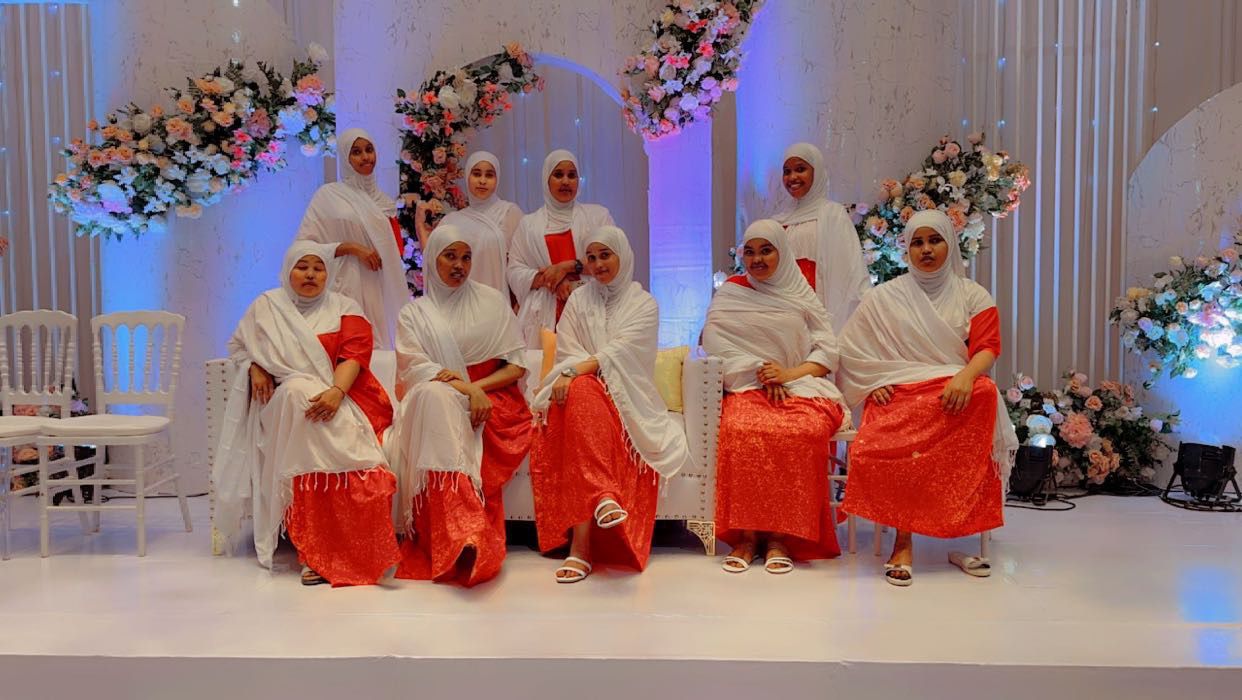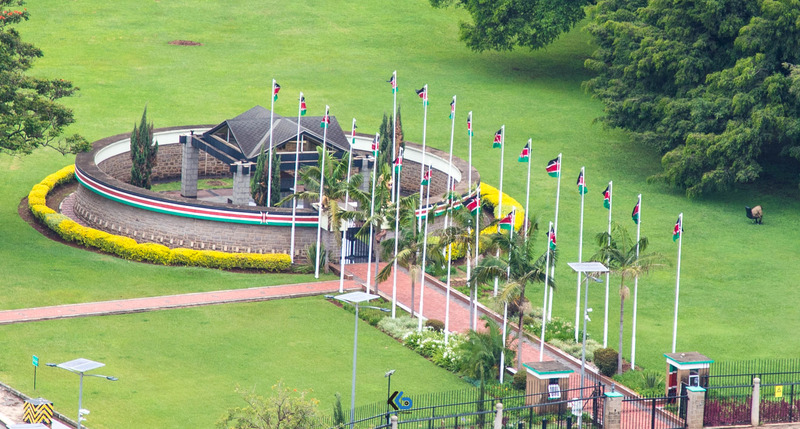From Jubaland to Eastleigh: Woman thrills audiences with traditional Somali poetry
Fartun’s performances have earned her the title of the Queen of Buranbur among locals who enjoy her poetry.
In the busy streets of Eastleigh in Nairobi where there is a vibrant Somali culture, Fartun Abdulkadir Hassan, popularly known as Fartun Kareeto, has become popular for her performances of Buranbur, a traditional Somali poetry often accompanied by drums and dance.
Fartun’s performances have earned her the title of the Queen of Buranbur among locals who enjoy her poetry.
More To Read
- Property worth millions destroyed as fire razes shops at Yare Business Park in Eastleigh
- MP Yusuf Hassan pledges to protect public land as intruders break into Maina Wanjigi in attempt to grab land
- Best biriyani in Eastleigh: Esli Hub Restaurant at Yare Towers delivers a flavour explosion
- Residents of Eastleigh’s Seventh Street demand urgent road repairs
- Court hears how police surveillance systems tracked suspects in Ahmed Rashid murder case
- Residents demand action as borehole drilling company renders Yusuf Haji Avenue impassable
In Somali culture, Buranbur—a dance typically performed by women at weddings and other joyous occasions—has a special place, and Fartun's proficiency in it has won her the respect of the populace as well as Somali politicians in Kenya, Somalia, and Ethiopia, for whom she frequently performs.
Fartun was born in Kismayo, in the Jubaland region of Somalia, but was brought up in different countries including Saudi Arabia and Ethiopia, before she finally came to Kenya. Since she had relatives in Kenya, this made it easier for her to settle here.
Reflecting on her journey to becoming the Queen of Buranbur, Fartun recalls that she discovered her knack for poetry at the tender age of nine as she captivated her peers with her original compositions. But it wasn't until 2012 that she officially began her career as a Buranbur performer.
Wedding bookings
Due to her popularity, Fartun is always invited to perform at many Somali weddings in Nairobi. She says she hardly has any free weekends as she is often engaged in performances. Sometimes she is booked for several months in a row, she adds.
Initially, Fartun says she was doing solo performances but she now has a dedicated group of twelve women who provide the rhythmic choruses essential to Buranbur. Additionally, she has some dancers who complement the poetic spectacle of the performances with a visual dimension.
 Fartun Hassan's performances have earned her the title of the Queen of Buranbur among locals who enjoy her poetry. (Photo: Amin Abdullahi/EV)
Fartun Hassan's performances have earned her the title of the Queen of Buranbur among locals who enjoy her poetry. (Photo: Amin Abdullahi/EV)
Fartun settled in Kenya in 2015, immersing herself in the local cultural scene and expanding her repertoire of Buranbur compositions. But tragedy struck the same year with the loss of her mother.
This, she says, left a huge void in her life.
"It was a bitter pill to take," she says, with obvious sadness on her face.
Beyond the weddings and the traditional Somali celebrations, Fartun uses the Buranbur performances to address pressing issues within the society such as climate change and national security.
Some of her Buranbur verses serve as a social commentary on pressing issues, resonating with audiences at a deeper level.
For Fartun, Buranbur is not just a passion but also a source of livelihood for herself and her two children.
She also uses her performances to advocate for the rights of Somali girls, aiming to empower them to achieve financial independence and shun female genital mutilation.
Tough times
In 2022, when the Covid-19 pandemic was spreading rapidly, Fartun says faced her toughest times. With restrictions on gatherings, her usual sources of income and joy, such as performing at weddings and cultural events, were shut. She found herself in a tough situation, feeling like there was little hope in her life.
 Fartun Hassan with her team during a past wedding. (Photo: Amin Abdullahi/EV)
Fartun Hassan with her team during a past wedding. (Photo: Amin Abdullahi/EV)
"There were no weddings and no events to attend. It was a really difficult time for me," she recalls.
However, she found solace in her faith, expressing gratitude that those difficult times are now behind her.
Fartun has also ventured into YouTube where she shares videos of her performances, aiming to reach a wider audience. With over 31,000 subscribers on YouTube and with her videos attracting many views, she believes she has established herself as a respected content creator.
Looking into the horizon, Fartun is concerned about the future of Buranbur and her Somali culture, especially among the younger generations. She is worried that this form of art may be fading away as fewer young people show interest in it or take the time to learn it.
"I wonder if there are any young women in Eastleigh who can perform Buranbur now. It's sad to see our cultural traditions being forgotten," she laments.
But despite these concerns, Fartun remains hopeful that with encouragement and support, younger generations will embrace Buranbur and keep the rich Somali cultural heritage alive for years to come.
Top Stories Today














































